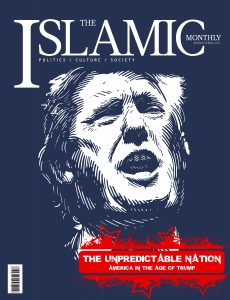After taking a trip to Cuba, Harvard professor Henry Louis Gates had this to say about pervasive racism there: “I saw segregation everywhere around me. … I saw a wide gap between rich and poor, and so many poor seemed to have brown faces.” Gates’ reflection shows that even a class-based revolution as thorough as the one that took place there over 50 years ago alone was unable to do away with racism. With this in mind, it is clear that any class-based politics alone cannot do away with racism and other forms of discrimination in the United States either.
It is not simply the case, as had sometimes been suggested, that racial problems can be broken down into economic or class issues
Conversation about the division between what has been deemed identity politics on one hand — which focuses on achieving equality for racial, ethnic, religious and gender groups — and a class-based approach on the other — which seeks to achieve equality primarily through economic measures — have become prominent in light of the seeming failure of the Hillary Clinton campaign to gain votes among the White working class. This division was also evident during the Democratic primary, with many seeing Bernie Sanders as representing a class-based strategy, which seemed to have more of an appeal to White working-class voters compared with Clinton’s approach. Post-mortems after last year’s election have frequently criticized Clinton’s campaign for focusing too much on identity politics and failing to create class-based appeal, the way Sanders had. What most of these criticisms fail to realize is that focusing on either concern does not preclude focusing on the other. Indeed, an effective opposition to Donald Trump must focus on both simultaneously.
It is not simply the case, as had sometimes been suggested, that racial problems can be broken down into economic or class issues. While it is true that African Americans and Latino Americans are disproportionately poor compared with Whites, even middle-class and wealthy African Americans and Latino Americans face issues that their White counterparts do not.
For example, numerous studies have shown that African Americans suffer from a higher prevalence of different chronic health conditions compared with their White counterparts. While it is true that there are also higher prevalences of these health conditions among lower socioeconomic groups, when statistical models control for socioeconomic status, most of the racial differences remain. Class does not tell the whole story.
Before 9/11, when demonizing Muslims was not a huge part of Republican rhetoric, a majority of Muslim voters in the United States voted for Republican candidates
But even if we did away with all class-based differences, racial groups would still face many hardships that Whites don’t encounter. Consider Gates’ case: In 2009, shortly after the election of Barack Obama, Gates was arrested after trying to get into his own home. Even an African American in a preeminent position as a Harvard professor is not free from such discrimination.
By the same token, an opposition that seeks to adequately address discrimination in this country can also appeal to certain groups that, based on socioeconomic status alone, may be seen to fit in more with Republican voters.
Before 9/11, when demonizing Muslims was not a huge part of Republican rhetoric, a majority of Muslim voters in the United States voted for Republican candidates. In the 2000 presidential election for instance, it is estimated that 70% of American Muslims voters voted for George W. Bush, likely because many Muslim Americans are members of the professional middle class, a traditionally Republican voting bloc. After 9/11 and the invasion of Iraq, however, this flipped, with one study estimating that 93% of American Muslims supported Bush’s rival John Kerry in 2004. In this case, an identity-based appeal (or in the case of Republican policies — a strong disincentive) was able to attract voters away from a party they may have been expected to support from a class-based perspective.
Opponents of Trump seeking to bring the White working class into their fold must first bring to light how Trump’s policies will only exacerbate working-class suffering
However, the challenge in creating a broad-based and effective opposition to Trump during the next four years will not be in attracting marginalized groups into this opposition. Trump himself has already done this by attacking Latinos, Muslims and others (with help from Vice President Mike Pence’s bigoted attitude toward the LGBTQ community). We have seen organized opposition — spearheaded by people of color, such as Black Lives Matter — take the lead in organizing their communities. But this opposition must also find a way to include White voters, particularly those who have been economically marginalized.
People of color and other marginalized communities have been asked to try to understand why many White voters were attracted to voting for Trump. While this understanding is important, it must also follow that members of the White community, at the very least, should try to empathize with disenfranchised groups and people of color who have faced much more severe and persistent hardships. Opponents of Trump seeking to bring the White working class into their fold must first bring to light how Trump’s policies will only exacerbate working-class suffering, and second must lead this community to a better understanding of how and why communities of color feel threatened by Trump’s proposals. Only an opposition motivated by both class and identity politics can stop the worst of Trump’s plans.
*Image: An abandoned building in Glasgow, Scotland. Flickr/Ralph Thompson
 This piece appears in our Winter 2016/2017 print issue.
This piece appears in our Winter 2016/2017 print issue.









